United Nations Conference on Trade and Development (UNCTAD) Trade and Environment Review
Filter :
Sustainable Development Goals
Subject
Publication date
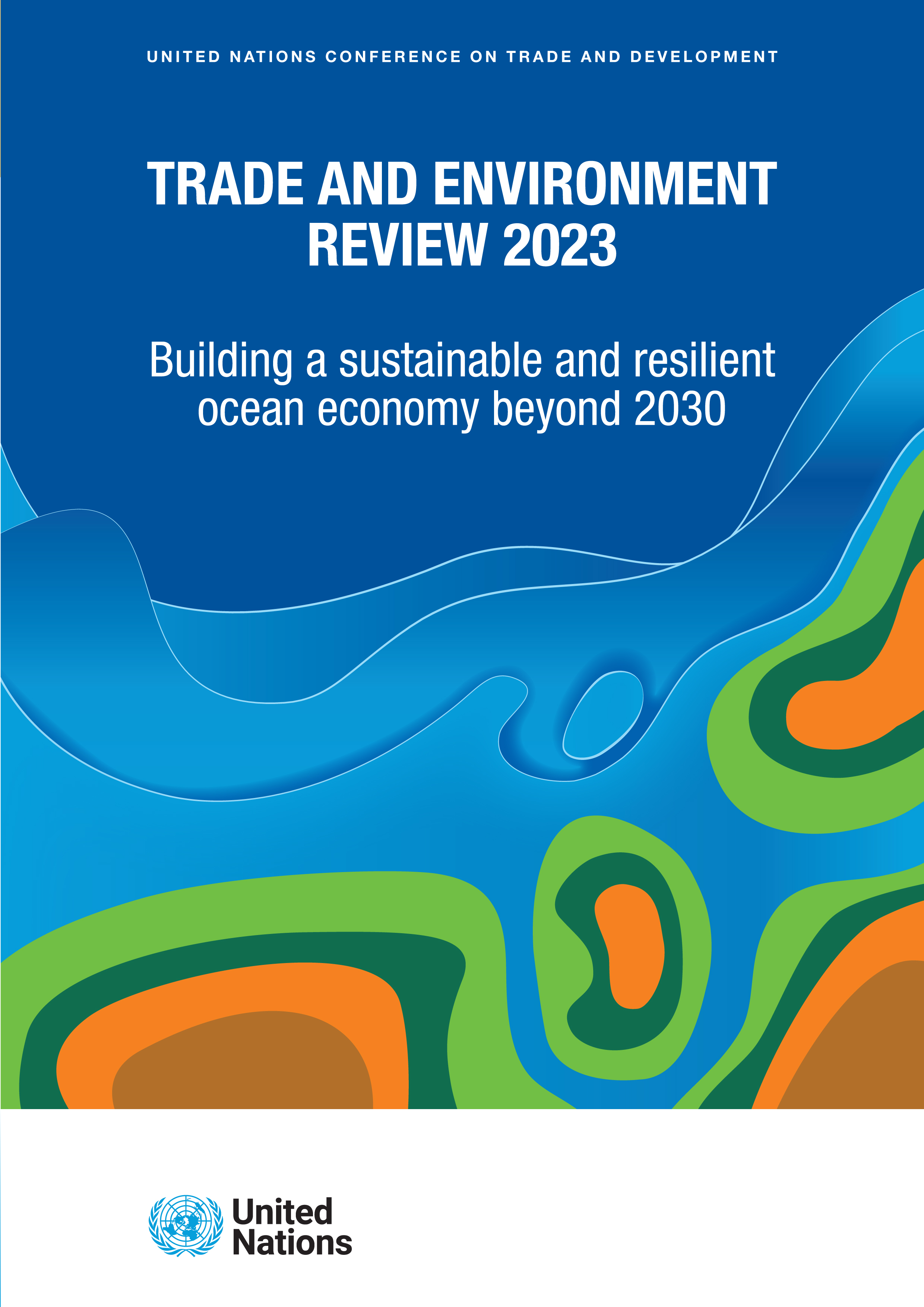
Trade and Environment Review 2023
Building a Sustainable and Resilient Ocean Economy Beyond 2030
This edition examines the current and emerging cross-cutting role of the ocean in advancing economic growth, social inclusion and environmental sustainability. It builds on the discussions and outcomes of the Fourth United Nations Oceans Forum on trade-related aspects of SDG 14, life below water, which took place in Geneva from 6 to 8 April 2022. The Review examines and provides an analysis of several key and emerging topics for the ocean economy, including the seaweed sector as a lever for a sustainable economic recovery; fisheries subsidies and non-tariff measures (NTMs); the decarbonization of shipping and maritime supply chains; and plastic litter and other ocean waste challenges. It explores these issues, identifies the main opportunities and challenges and concludes by offering a bottom-up menu of action-oriented policy recommendations for Small Island Developing States (SIDS) and coastal developing countries. It calls for a “Blue Deal” on trade and finance to accelerate the implementation of SDG 14 and identify practical yet far-reaching development paths towards a sustainable, resilient and inclusive ocean economy by 2030 and beyond.
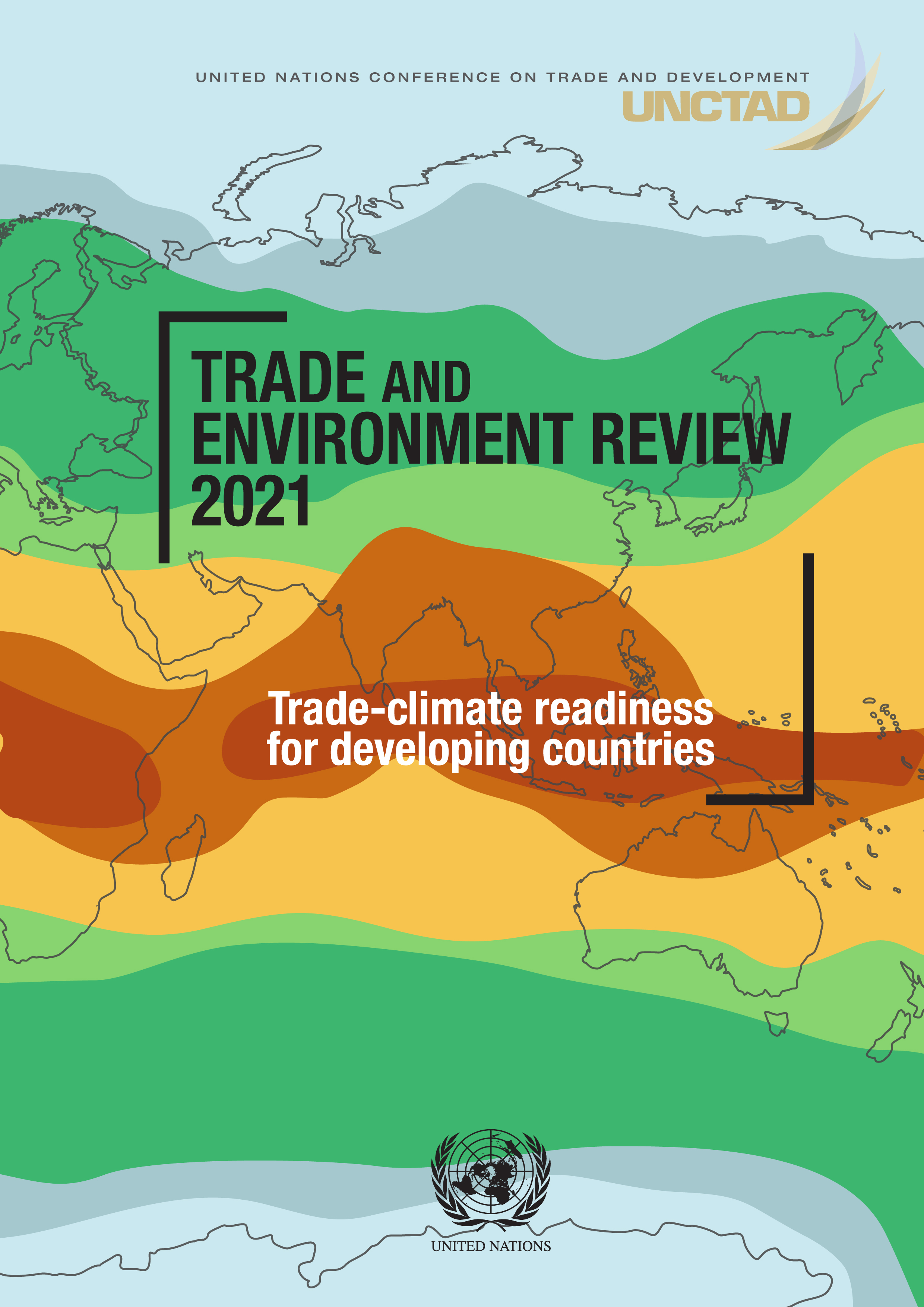
Trade and Environment Review 2021
Trade-Climate Readiness for Developing Countries
This edition examines the physical impacts of climate change and their effects on developing country economies and trade; the vulnerabilities of developing countries to climate change; costs and finance for climate change adaptation; and ways that developing countries can enhance their trade-climate readiness, i.e., enhance the resilience of their trade to climate change through adaptation actions and economic diversification. Special attention is given to examining the challenges faced by the poorest and most vulnerable developing countries, specifically the least developed countries (LDCs) and small island developing states (SIDS).
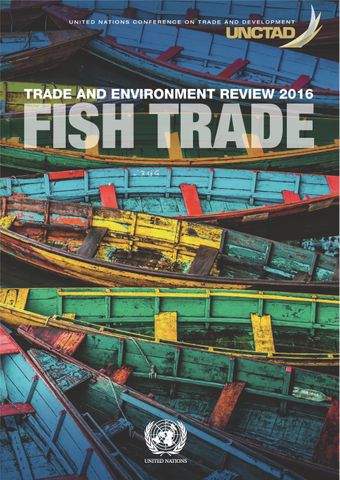
Trade and Environment Review 2016
Fish Trade
The Trade and Environment Review 2016 addresses the matter of harmful incentives, primarily in terms of Illegal, Unreported and Unregulated (IUU) fishing and fisheries subsidies, as an important part of the toolkit to restore fish populations, foster sustainable fisheries and deliver substantial economic and social gains. The Review proposes developing an overarching traceability system of traded fish from vessel to final consumer, as key to arresting and eliminating IUU fishing, but notes the requirement for major upgrading of institutional and technical implementation capacities, which may be difficult for some countries with fewer financial resources. On subsidies, there should be full transparency and disclosure of all fisheries subsidies, which should be classified in order to identify and distinguish those that are harmful or not. Efforts to discipline capacity-enhancing subsidies should be exerted at the national, regional and global levels of governance and, given previous intransience on this issue, a group of countries in partnership with organizations such as the WTO, UNCTAD and the FAO could stimulate collective actions with bottom-up voluntary commitments to subsidy reform.
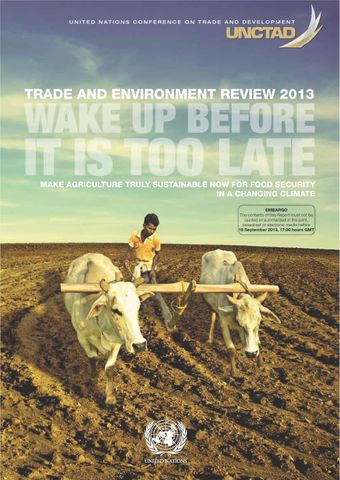
Trade and Environment Review 2013
Wake up before it is too Late - Make Agriculture Truly Sustainable now for Food Security in a Changing Climate

Trade and Environment Review 2009/2010
Promoting Poles of Clean Growth to Foster the Transition to a More Sustainable Economy
While several rapidly industrializing developing countries have not seen a major slump in their growth by the recent economic and financial crises, UNCTAD’s Trade and Environment Review 2009/2010 (TER 09/10) focuses on the 140 plus low-income and least developed countries, which have not caused the economic, financial, climate and food crises, but have to bear the full brunt of these crises. The stress of the global financial crisis — as well as concerns about climate change and food prices — should be used by developing countries to shift towards clean growth. Because so little has been done in such nations huge gains can be realized in improving energy efficiency, enhancing sustainable agricultural methods, and stimulating the use of rural, off-grid renewable energy. But to make this progress happen, governments must eliminate market barriers and policies that prevent the flow of capital into these promising sectors.
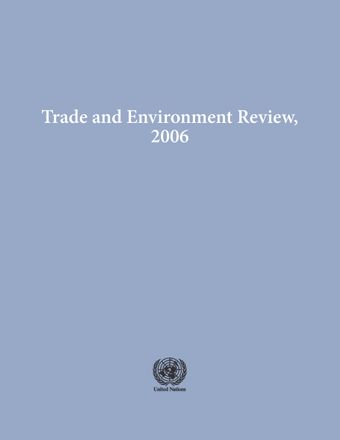
Trade and Environment Review 2006
Environmental Requirements and Market Access for Developing Countries — Developing Pro-Active Approaches and Strategies
This edition of the Review focuses on environmental and related health requirements and their impact on developing countries’ market access. It examines both the opportunities and challenges presented by these requirements. It also includes both general and sectoral analyses of the issue, and looks at two sectors where environmental requirements are critical to market access: electrical and electronic equipment and organic agricultural products. The Review also provides an overview of recent UNCTAD technical cooperation and capacity building activities in the area of trade and environment.
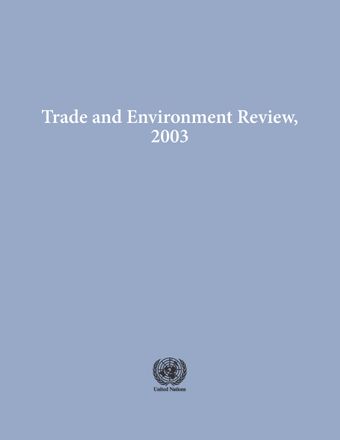
Trade and Environment Review 2003
The Trade and Development Review focuses on themes that are of particular interest to developing countries. In doing so it provides a forum for dialogue aimed at assisting developing countries in shaping their specific interest in the international trade and environment debate. The issues discussed in this publication are; trade obligations in multilateral environmental agreements, environmental goods and services, World Trade Organization and technical capacity building.
